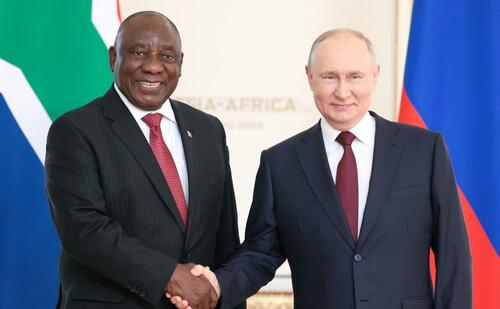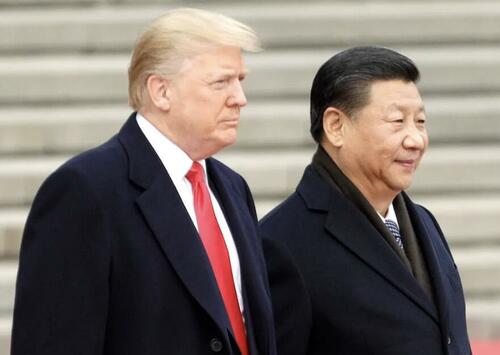South Africa Expresses 'Heartfelt Gratitude' For Putin Returning 17 Citizens Trapped In Warzone
BRICS allies Russia and South Africa are taking steps to heal tensions related to the Ukraine war and allegations that groups of South African men were 'lured' to fight on behalf of Moscow.
Last December, a Reuters investigation documented that South Africans were being recruited into the Russian armed forces under false pretenses. People were allegedly promised high-level jobs and elite training in Russia, only to find out they unwittingly joined the Russian military, and eventually found themselves fighting in Ukraine soon after documents were hastily signed. In these cases the implication is that these South African individuals are in desperate financial straits.
 Presidents Putin and Cyril Ramaphosa, via TASS.
Presidents Putin and Cyril Ramaphosa, via TASS.
The South African government had first confirmed in November its officials had received "distress calls" from 17 men who were trapped on the front line in Ukraine's Donbas, after in some instances having mistakenly joined mercenary groups.
The Reuters report had said young men were offered training programs in Russia which would lead to high paying jobs like personal security protection. But instead they were given low-level positions like trench-diggers or tasked with hauling ammo or high risk logistical endeavors - all while "dodging bullets" according to the report.
But the saga is coming to a close and with some diplomatic healing as Russia has promptly returned the 17 men. South Africa's Cyril Ramaphosa on Tuesday issued a statement of "heartfelt gratitude" to President Vladimir Putin for resolving the issue quickly.
"President Ramaphosa has expressed his heartfelt gratitude to President Vladimir Putin, who responded positively to his call to support the process of returning the men home," the presidency said in a statement.
"The investigation into the circumstances that led to the recruitment of these young men into mercenary activities is ongoing," it added.
According to the latest via Fox:
Four of the men have already returned to South Africa, while 11 are expected to arrive soon.
Two remain in Russia — one receiving treatment at a hospital in Moscow and another being processed before finalizing travel arrangements.
The South African government had previously acknowledged that the "process to retrieve those young men remains a very sensitive process" - for which it was giving the highest priority.
"They are afraid that Russian military or Russian soldiers might kill them."
— Sky News (@SkyNews) December 17, 2025
Thulani Mahlangu, a representative of parents of South African mercenaries fighting for Russia, tells @SkyYaldaHakim they have no way home if they decide to leave.https://t.co/YXMcOOyMkZ pic.twitter.com/zXlvbHFbre
The government has also admitted the the reality that many South Africans have also traveled to fight for Ukrainian forces. But this has been seen as less of an issue because it was more transparent they were either volunteering or getting paid specifically to fight on behalf of Ukraine.
Tyler Durden Thu, 02/26/2026 - 06:55


Recent comments